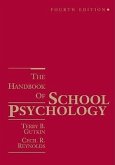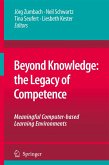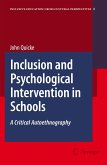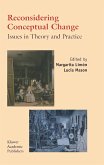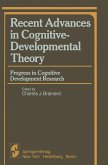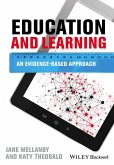Schade – dieser Artikel ist leider ausverkauft. Sobald wir wissen, ob und wann der Artikel wieder verfügbar ist, informieren wir Sie an dieser Stelle.
- Loseblattsammlung
- Merkliste
- Auf die Merkliste
- Bewerten Bewerten
- Teilen
- Produkt teilen
- Produkterinnerung
- Produkterinnerung
O'Donnell's latest issue of Educational Psychology: Reflection for Action 3rd Edition has the reflective practice framework that teaches skills necessary to know how to connect the theory to various situations. This issue teaches critical thinking and reflective practice skills that are essential to long-term success and growth. Reflective practice is woven throughout the text using real classroom examples, and features such as "Analyze This Lesson Plan" and "How Can I Use This" to encourage probing and examining in order to find a solution.
Andere Kunden interessierten sich auch für
![The Handbook of School Psychology The Handbook of School Psychology]() Terry B GutkinThe Handbook of School Psychology316,99 €
Terry B GutkinThe Handbook of School Psychology316,99 €![Developmental Psychology for the Helping Professions Developmental Psychology for the Helping Professions]() Brian SheldonDevelopmental Psychology for the Helping Professions75,99 €
Brian SheldonDevelopmental Psychology for the Helping Professions75,99 €![Beyond Knowledge: The Legacy of Competence Beyond Knowledge: The Legacy of Competence]() Beyond Knowledge: The Legacy of Competence149,99 €
Beyond Knowledge: The Legacy of Competence149,99 €![Inclusion and Psychological Intervention in Schools Inclusion and Psychological Intervention in Schools]() John QuickeInclusion and Psychological Intervention in Schools75,99 €
John QuickeInclusion and Psychological Intervention in Schools75,99 €![Reconsidering Conceptual Change: Issues in Theory and Practice Reconsidering Conceptual Change: Issues in Theory and Practice]() Margarita Limón / L. Mason (eds.)Reconsidering Conceptual Change: Issues in Theory and Practice171,99 €
Margarita Limón / L. Mason (eds.)Reconsidering Conceptual Change: Issues in Theory and Practice171,99 €![Recent Advances in Cognitive-Developmental Theory Recent Advances in Cognitive-Developmental Theory]() Recent Advances in Cognitive-Developmental Theory105,99 €
Recent Advances in Cognitive-Developmental Theory105,99 €![Education and Learning Education and Learning]() Jane MellanbyEducation and Learning47,99 €
Jane MellanbyEducation and Learning47,99 €-
-
-
O'Donnell's latest issue of Educational Psychology: Reflection for Action 3rd Edition has the reflective practice framework that teaches skills necessary to know how to connect the theory to various situations. This issue teaches critical thinking and reflective practice skills that are essential to long-term success and growth. Reflective practice is woven throughout the text using real classroom examples, and features such as "Analyze This Lesson Plan" and "How Can I Use This" to encourage probing and examining in order to find a solution.
Produktdetails
- Produktdetails
- Verlag: Wiley
- 3rd Binder Ready Version edition
- Seitenzahl: 672
- Erscheinungstermin: 6. Dezember 2011
- Englisch
- Abmessung: 277mm x 213mm x 23mm
- Gewicht: 1225g
- ISBN-13: 9781118129159
- ISBN-10: 1118129156
- Artikelnr.: 39218917
- Herstellerkennzeichnung
- Libri GmbH
- Europaallee 1
- 36244 Bad Hersfeld
- gpsr@libri.de
- Verlag: Wiley
- 3rd Binder Ready Version edition
- Seitenzahl: 672
- Erscheinungstermin: 6. Dezember 2011
- Englisch
- Abmessung: 277mm x 213mm x 23mm
- Gewicht: 1225g
- ISBN-13: 9781118129159
- ISBN-10: 1118129156
- Artikelnr.: 39218917
- Herstellerkennzeichnung
- Libri GmbH
- Europaallee 1
- 36244 Bad Hersfeld
- gpsr@libri.de
Angela M. O'Donnell research explores the significance of peers in the learning process. She says that most people really learn what they want to know from asking other people. The ability to recognize and effectively use peers is especially important to those who feel they have few resources.
1 Introducing Educational Psychology and Reflective Teachingxxxiv
Educational Psychology 2
Theories and Research 6
Narrowing the Gap between Theory and Practice 17
Reflective Teaching 19
2 Teachers and Teaching 28
The Teaching Life 30
What Is Teaching? 31
Teacher Development 33
Teaching Efficacy 41
Planning 48
General Approaches to Teaching 57
3 Cognitive Development 66
Brain Development 68
Cognitive Development 72
Sociocognitive Development 85
Language Development 93
4 Social Development 108
Relationships 111
Psychosocial Development 119
Moral Development 127
Social Competence 132
Aggression 136
5 Behavioral Learning Theory 150
Explaining Learning 152
Principles of Behavioral Learning Theory 155
Reinforcement 156
Punishment 160
Behavioral Learning Theory and Diverse Learners 164
Applied Behavior Analysis 165
Behavioral Learning Theory and Special Needs Students 167
Managing Behavior 167
Influences of Behavioral Learning Theory on Instruction 177
6 Managing Learning in Classrooms 186
Designing the Physical Environment 188
Designing the Social Environment: Norms and Rules 195
Managing Day-to-Day Classroom Instruction 206
Dealing with Behavior Problems 211
7 Cognitive Learning Theory 222
Cognitive Theories of Learning 224
The Information-Processing Model 225
Memory Systems 230
Encoding, Retrieval, and Forgetting 238
Categorization 244
8 Social Learning Theory, Complex Cognition, and SocialConstructivism 254
Social Learning Theory 256
Complex Cognition 262
Complex Cognition and Social Constructivism 268
Instruction Influenced by Social-Constructivist andSociocultural Theory 279
9 Learning from Peers 290
Perspectives on Peer Learning 292
Tutoring 304
Learning in Heterogeneous Groups 311
Collaboration and Technology 314
Influences on Effectiveness in Heterogeneous Groups 316
Learning from Peers: Practices for Learning 321
10 Motivation and Engagement 332
Engagement 334
Motivation 341
Intrinsic and Extrinsic Motivation 342
Psychological Needs 348
Curiosity, Interest, and Positive Affect 356
Engagement-Draining Motivational Deficits 360
11 Motivation to Learn 372
Motivation Is Rooted in Constructive Thinking 375
Self-Efficacy 376
Variability in the Classroom 414
Intelligence 415
Talent 423
Extremes of Intelligence 427
Differences in Ability and Instruction 429
Learners with Special Needs 430
Prevalent Student Needs and Challenges 435
Mastery Beliefs 381
Goals 387
Self-Regulation 397
Self-Concept 401
12 Individual Differences and Special Needs 412
13 Issues in Diversity 450
Diverse Learners 452
English Language Learners 460
Multicultural Education: An Overview 461
Implementing a Multicultural Approach to Teaching 465
Becoming a Teacher of Diverse Children 469
14 Assessment for Learning 482
Assessments in Everyday Life 484
Assessment for Learning: Roles, Goals, and Audiences 486
Principles of Assessment and Grading 489
Options for Assessment 491
Developing and Using Assessments 502
Interpreting Classroom Assessments 509
Developing a Grading System 513
Communicating with Parents 517
15 Standardized and Standards-Based Assessments 526
The Nature and Development of Standardized Assessment 528
Technical Issues in Assessment 534
Interpreting Standardized Assessments 547
Controversies in Assessment 555
Appendix: Looking at the Praxis II(TM) Principles of Learningand Teaching
Assessment and the INTASC Principles 564
Glossary 574
References 582
Name Index 619
Subject Index 629
Educational Psychology 2
Theories and Research 6
Narrowing the Gap between Theory and Practice 17
Reflective Teaching 19
2 Teachers and Teaching 28
The Teaching Life 30
What Is Teaching? 31
Teacher Development 33
Teaching Efficacy 41
Planning 48
General Approaches to Teaching 57
3 Cognitive Development 66
Brain Development 68
Cognitive Development 72
Sociocognitive Development 85
Language Development 93
4 Social Development 108
Relationships 111
Psychosocial Development 119
Moral Development 127
Social Competence 132
Aggression 136
5 Behavioral Learning Theory 150
Explaining Learning 152
Principles of Behavioral Learning Theory 155
Reinforcement 156
Punishment 160
Behavioral Learning Theory and Diverse Learners 164
Applied Behavior Analysis 165
Behavioral Learning Theory and Special Needs Students 167
Managing Behavior 167
Influences of Behavioral Learning Theory on Instruction 177
6 Managing Learning in Classrooms 186
Designing the Physical Environment 188
Designing the Social Environment: Norms and Rules 195
Managing Day-to-Day Classroom Instruction 206
Dealing with Behavior Problems 211
7 Cognitive Learning Theory 222
Cognitive Theories of Learning 224
The Information-Processing Model 225
Memory Systems 230
Encoding, Retrieval, and Forgetting 238
Categorization 244
8 Social Learning Theory, Complex Cognition, and SocialConstructivism 254
Social Learning Theory 256
Complex Cognition 262
Complex Cognition and Social Constructivism 268
Instruction Influenced by Social-Constructivist andSociocultural Theory 279
9 Learning from Peers 290
Perspectives on Peer Learning 292
Tutoring 304
Learning in Heterogeneous Groups 311
Collaboration and Technology 314
Influences on Effectiveness in Heterogeneous Groups 316
Learning from Peers: Practices for Learning 321
10 Motivation and Engagement 332
Engagement 334
Motivation 341
Intrinsic and Extrinsic Motivation 342
Psychological Needs 348
Curiosity, Interest, and Positive Affect 356
Engagement-Draining Motivational Deficits 360
11 Motivation to Learn 372
Motivation Is Rooted in Constructive Thinking 375
Self-Efficacy 376
Variability in the Classroom 414
Intelligence 415
Talent 423
Extremes of Intelligence 427
Differences in Ability and Instruction 429
Learners with Special Needs 430
Prevalent Student Needs and Challenges 435
Mastery Beliefs 381
Goals 387
Self-Regulation 397
Self-Concept 401
12 Individual Differences and Special Needs 412
13 Issues in Diversity 450
Diverse Learners 452
English Language Learners 460
Multicultural Education: An Overview 461
Implementing a Multicultural Approach to Teaching 465
Becoming a Teacher of Diverse Children 469
14 Assessment for Learning 482
Assessments in Everyday Life 484
Assessment for Learning: Roles, Goals, and Audiences 486
Principles of Assessment and Grading 489
Options for Assessment 491
Developing and Using Assessments 502
Interpreting Classroom Assessments 509
Developing a Grading System 513
Communicating with Parents 517
15 Standardized and Standards-Based Assessments 526
The Nature and Development of Standardized Assessment 528
Technical Issues in Assessment 534
Interpreting Standardized Assessments 547
Controversies in Assessment 555
Appendix: Looking at the Praxis II(TM) Principles of Learningand Teaching
Assessment and the INTASC Principles 564
Glossary 574
References 582
Name Index 619
Subject Index 629
1 Introducing Educational Psychology and Reflective Teachingxxxiv
Educational Psychology 2
Theories and Research 6
Narrowing the Gap between Theory and Practice 17
Reflective Teaching 19
2 Teachers and Teaching 28
The Teaching Life 30
What Is Teaching? 31
Teacher Development 33
Teaching Efficacy 41
Planning 48
General Approaches to Teaching 57
3 Cognitive Development 66
Brain Development 68
Cognitive Development 72
Sociocognitive Development 85
Language Development 93
4 Social Development 108
Relationships 111
Psychosocial Development 119
Moral Development 127
Social Competence 132
Aggression 136
5 Behavioral Learning Theory 150
Explaining Learning 152
Principles of Behavioral Learning Theory 155
Reinforcement 156
Punishment 160
Behavioral Learning Theory and Diverse Learners 164
Applied Behavior Analysis 165
Behavioral Learning Theory and Special Needs Students 167
Managing Behavior 167
Influences of Behavioral Learning Theory on Instruction 177
6 Managing Learning in Classrooms 186
Designing the Physical Environment 188
Designing the Social Environment: Norms and Rules 195
Managing Day-to-Day Classroom Instruction 206
Dealing with Behavior Problems 211
7 Cognitive Learning Theory 222
Cognitive Theories of Learning 224
The Information-Processing Model 225
Memory Systems 230
Encoding, Retrieval, and Forgetting 238
Categorization 244
8 Social Learning Theory, Complex Cognition, and SocialConstructivism 254
Social Learning Theory 256
Complex Cognition 262
Complex Cognition and Social Constructivism 268
Instruction Influenced by Social-Constructivist andSociocultural Theory 279
9 Learning from Peers 290
Perspectives on Peer Learning 292
Tutoring 304
Learning in Heterogeneous Groups 311
Collaboration and Technology 314
Influences on Effectiveness in Heterogeneous Groups 316
Learning from Peers: Practices for Learning 321
10 Motivation and Engagement 332
Engagement 334
Motivation 341
Intrinsic and Extrinsic Motivation 342
Psychological Needs 348
Curiosity, Interest, and Positive Affect 356
Engagement-Draining Motivational Deficits 360
11 Motivation to Learn 372
Motivation Is Rooted in Constructive Thinking 375
Self-Efficacy 376
Variability in the Classroom 414
Intelligence 415
Talent 423
Extremes of Intelligence 427
Differences in Ability and Instruction 429
Learners with Special Needs 430
Prevalent Student Needs and Challenges 435
Mastery Beliefs 381
Goals 387
Self-Regulation 397
Self-Concept 401
12 Individual Differences and Special Needs 412
13 Issues in Diversity 450
Diverse Learners 452
English Language Learners 460
Multicultural Education: An Overview 461
Implementing a Multicultural Approach to Teaching 465
Becoming a Teacher of Diverse Children 469
14 Assessment for Learning 482
Assessments in Everyday Life 484
Assessment for Learning: Roles, Goals, and Audiences 486
Principles of Assessment and Grading 489
Options for Assessment 491
Developing and Using Assessments 502
Interpreting Classroom Assessments 509
Developing a Grading System 513
Communicating with Parents 517
15 Standardized and Standards-Based Assessments 526
The Nature and Development of Standardized Assessment 528
Technical Issues in Assessment 534
Interpreting Standardized Assessments 547
Controversies in Assessment 555
Appendix: Looking at the Praxis II(TM) Principles of Learningand Teaching
Assessment and the INTASC Principles 564
Glossary 574
References 582
Name Index 619
Subject Index 629
Educational Psychology 2
Theories and Research 6
Narrowing the Gap between Theory and Practice 17
Reflective Teaching 19
2 Teachers and Teaching 28
The Teaching Life 30
What Is Teaching? 31
Teacher Development 33
Teaching Efficacy 41
Planning 48
General Approaches to Teaching 57
3 Cognitive Development 66
Brain Development 68
Cognitive Development 72
Sociocognitive Development 85
Language Development 93
4 Social Development 108
Relationships 111
Psychosocial Development 119
Moral Development 127
Social Competence 132
Aggression 136
5 Behavioral Learning Theory 150
Explaining Learning 152
Principles of Behavioral Learning Theory 155
Reinforcement 156
Punishment 160
Behavioral Learning Theory and Diverse Learners 164
Applied Behavior Analysis 165
Behavioral Learning Theory and Special Needs Students 167
Managing Behavior 167
Influences of Behavioral Learning Theory on Instruction 177
6 Managing Learning in Classrooms 186
Designing the Physical Environment 188
Designing the Social Environment: Norms and Rules 195
Managing Day-to-Day Classroom Instruction 206
Dealing with Behavior Problems 211
7 Cognitive Learning Theory 222
Cognitive Theories of Learning 224
The Information-Processing Model 225
Memory Systems 230
Encoding, Retrieval, and Forgetting 238
Categorization 244
8 Social Learning Theory, Complex Cognition, and SocialConstructivism 254
Social Learning Theory 256
Complex Cognition 262
Complex Cognition and Social Constructivism 268
Instruction Influenced by Social-Constructivist andSociocultural Theory 279
9 Learning from Peers 290
Perspectives on Peer Learning 292
Tutoring 304
Learning in Heterogeneous Groups 311
Collaboration and Technology 314
Influences on Effectiveness in Heterogeneous Groups 316
Learning from Peers: Practices for Learning 321
10 Motivation and Engagement 332
Engagement 334
Motivation 341
Intrinsic and Extrinsic Motivation 342
Psychological Needs 348
Curiosity, Interest, and Positive Affect 356
Engagement-Draining Motivational Deficits 360
11 Motivation to Learn 372
Motivation Is Rooted in Constructive Thinking 375
Self-Efficacy 376
Variability in the Classroom 414
Intelligence 415
Talent 423
Extremes of Intelligence 427
Differences in Ability and Instruction 429
Learners with Special Needs 430
Prevalent Student Needs and Challenges 435
Mastery Beliefs 381
Goals 387
Self-Regulation 397
Self-Concept 401
12 Individual Differences and Special Needs 412
13 Issues in Diversity 450
Diverse Learners 452
English Language Learners 460
Multicultural Education: An Overview 461
Implementing a Multicultural Approach to Teaching 465
Becoming a Teacher of Diverse Children 469
14 Assessment for Learning 482
Assessments in Everyday Life 484
Assessment for Learning: Roles, Goals, and Audiences 486
Principles of Assessment and Grading 489
Options for Assessment 491
Developing and Using Assessments 502
Interpreting Classroom Assessments 509
Developing a Grading System 513
Communicating with Parents 517
15 Standardized and Standards-Based Assessments 526
The Nature and Development of Standardized Assessment 528
Technical Issues in Assessment 534
Interpreting Standardized Assessments 547
Controversies in Assessment 555
Appendix: Looking at the Praxis II(TM) Principles of Learningand Teaching
Assessment and the INTASC Principles 564
Glossary 574
References 582
Name Index 619
Subject Index 629


